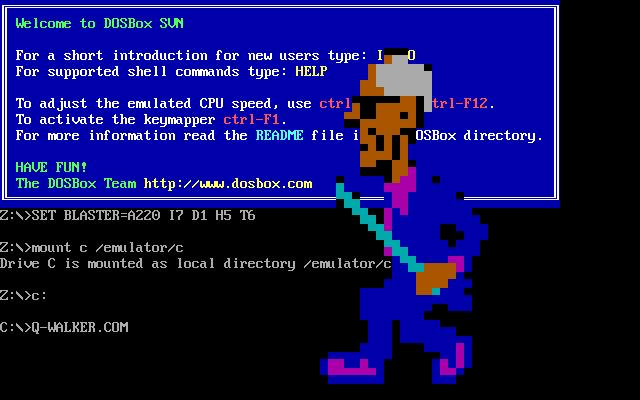The retro virus
The advent of social media provided its users with the ability to connect with like-minded people and eatuorm microcosmic communities. The internet has allowed fangirls and fanboys everywhere to exaggerate their emotions and gain validation for doing so.
Not surprisingly, this has led to nostalgia becoming one of the most popular emotions expressed on the internet. Clickbait websites like Buzzfeed and Upworthy thrive on this nostalgia wave, regularly releasing ‘listicles’ – articles that comprise of lists of things often recalling “the ‘90s.” These articles mostly consist of artists, activities or fashion trends from that seemingly glorious time period.
However, this museum is riding a different wave of nostalgia. The Malware Museum is an online exhibit showcasing the ‘best’ viruses “that were distributed in the 1980s and 1990s on home computers,” according to its homepage. This collection was curated by Jason Scott, a computer historian who has previously created a ‘bulletin board’ museum of messages from the days of prehistoric internet. The viruses come from the personal archives of Mikko Hypponen, a cybersecurity expert and worldwide authority on viruses at F-Secure, an online security corporation based in Finland. He stored his findings on floppy disks (yet another buzzword that generates ‘90s nostalgia), and gave them to Scott, who promptly curated it for the world to explore.
All of these viruses hail from the good ol’ days when contamination happened through floppy disks, not spurious downloads from the internet. Wired.com points out that all of these viruses existed for their own sake, not to commit identity theft, but to erase data and irritate computer users. “They wrote them because they could,” said Cade Metz, a senior blogger at Wire.
The museum features some of the most colourful and irritating viruses from Hypponen archives. Scott and his team have removed the malicious effects of the viruses so all users can open them, but not experience any of the inconveniences they caused their users twenty-something years ago. One of Hypponen and Scott’s favourite viruses is the ‘Casino virus,’ which would overwrite all critical parts of the computer’s system and make a copy of all the computer’s personal files. It would then offer the user an opportunity to play Jackpot and win them back. Another virus, covertly named “coffshop.com” wiped all files from a computer and only displayed the message “Legalise Cannabis” on the screen. Another virus, ‘LSD.com’, would wipe a user’s computer and reduce it to a screen that showcased the ‘rainbow plasma’ effect of the namesake hallucinogen. Somebody even created a virus that would play the iconic Star Wars credits across the computer screen – in Spanish.
Hypponen is surprised at the amount of nostalgia generated by the old malware. “Old school happy hackers who used to write viruses for fun are nowhere to be seen,” he said. Patrick Barkham, a writer for The Guardian, called these viruses “provocative works of art.”
“I have just DESTROYED the FAT on your disk!!” the Casino virus claims. “I’m giving you a last chance to restore your precious data. […] Your Data depends on a game of JACKPOT.” The game is obviously rigged to make the user lose, and after the inevitable happens, it taunts the loser with this eloquent (and heavily edited for expletives) message: “HA HA!! […] you’ve lost.” I wonder where it’s creator is now.
Sources: The Guardian, BBC, Wired.com, Archive.org

This is Anoushka’s second and final year in The Talon. She still does not know how to write a biography and would probably ‘google’ it if she knew...





